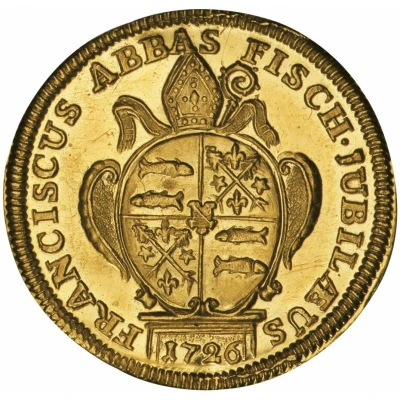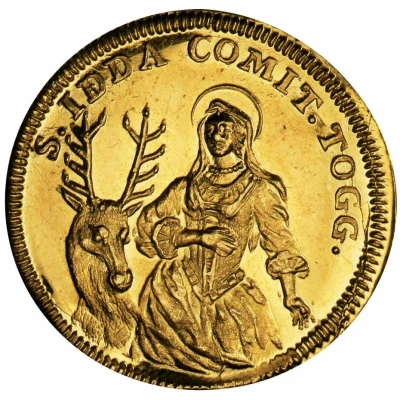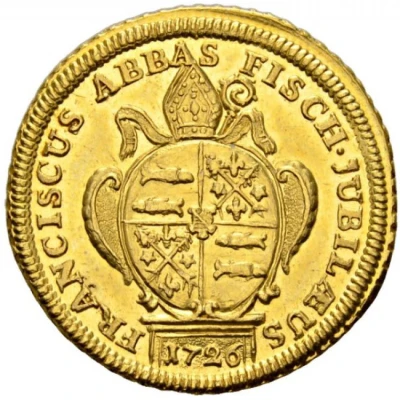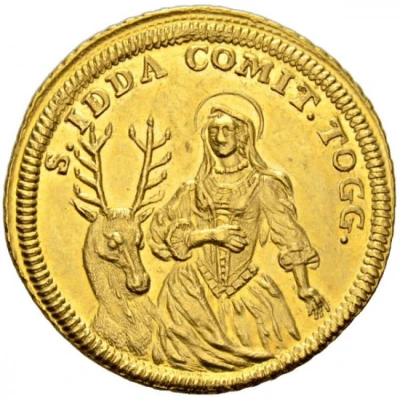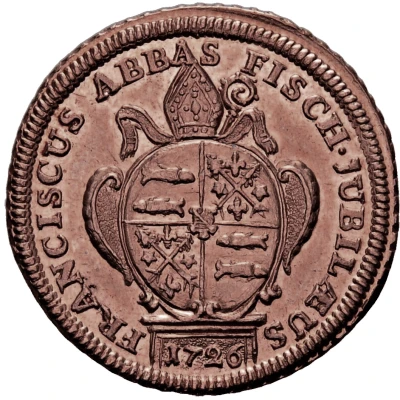
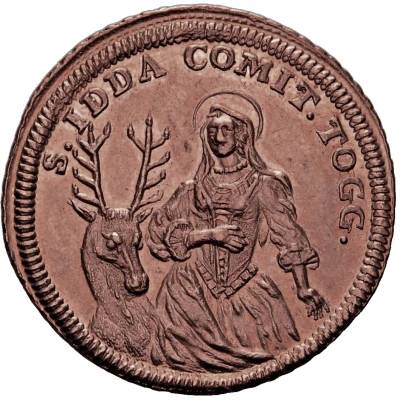

© Hess Divo
Ducat - Franz Troger copper strike
1726 year| Copper | 2.49 g | - |
| Issuer | Abbey of Fischingen (Glarus) |
|---|---|
| Type | Pattern |
| Year | 1726 |
| Value | 1 Ducat |
| Currency | Ducat (1688-1728) |
| Composition | Copper |
| Weight | 2.49 g |
| Shape | Round |
| Demonetized | Yes |
| Updated | 2024-10-07 |
| Numista | N#194676 |
|---|---|
| Rarity index | 100% |
Reverse
Nimbate Saint Idda, Countess of Toggenburg, standing and facing. To her right, a stag with six-ended antlers with flames on ends.
Script: Latin
Lettering: S. IDDA COMIT. TOGG.
Engraver: Hans Jakob Gessner
Comment
R4 scarcity according to Richter Proben 2016 (2-4 known pieces)Minted by Abbott Franz Troger, 1688-1728 in Zürich.
The Benedictine Monastery of Fischingen was founded in 1138 by Bishop Ulrich II of Constance as episcopal monastery. The monastery offered shelter to pilgrims on their way from Constance to Einsiedeln.
Celebrated on 3rd November, Saint Idda was the daughter of the count of Kirchberg near Ulm and married to a count of Toggenburg. Legend has it that a raven stole Idda's wedding ring. The ring was found by a hunter in a bird's nest. When her husband noticed the ring on the hunter's hand, he accused Idda of infidelity. He had the hunter killed and rushed Idda out of the window of his castle. Because of her innocence she was miraculously saved by God. Later discovered in her hermitage, the error cleared up, but Idda wanted to dedicate her life as a recluse to God. Her penitent husband later had her locked in the monastery Fischingen, where she died in the call of holiness.
Interesting fact
One interesting fact about the Pattern Ducat - Franz Troger (copper strike) 1726 from Abbey of Fischingen (Glarus) made of Copper weighing 2.49 g is that it features a unique design, showcasing the coat of arms of the Abbey of Fischingen on one side and an image of Saint Gall on the other. This coin is a rare example of a copper strike, as most coins from this time period were made of precious metals like gold or silver. Additionally, the fact that it was minted in 1726 makes it a valuable piece for collectors interested in the history of numismatics.
